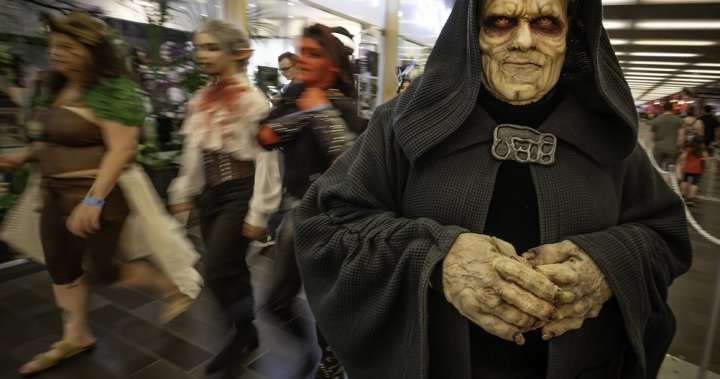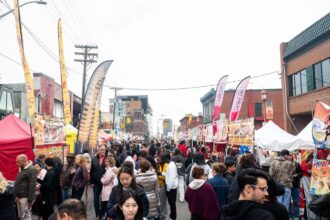The sprawling halls of Palais des congrès will soon echo with the excited chatter of cosplayers, collectors, and pop culture enthusiasts as Montreal Comiccon prepares for what might be its most significant year yet. While fans eagerly anticipate celebrity encounters and exclusive merchandise, an unexpected geopolitical factor might actually boost this year’s attendance: the ongoing U.S.-China trade tensions.
“We’re seeing some interesting patterns in ticket sales,” explains François Morin, spokesperson for Montreal Comiccon. “There’s been a noticeable uptick in registrations from American vendors and attendees compared to previous years.” This shift, while seemingly unrelated to international trade disputes, has direct connections to the economic ripple effects of tariffs and trade restrictions.
The explanation is surprisingly straightforward. As American comic conventions face rising costs for merchandise—much of which originates in China and now carries hefty import tariffs—many U.S.-based vendors and exhibitors are looking north. Montreal’s event offers them a chance to access the North American market while potentially bypassing some of the most restrictive trade barriers.
For Montreal’s convention, this translates to a richer, more diverse exhibitor floor. Collectors can expect to find rare items that might be prohibitively expensive or entirely unavailable at U.S.-based events. The irony isn’t lost on industry insiders: a trade war meant to protect American interests has inadvertently created a competitive advantage for Canadian pop culture gatherings.
“We’ve had to expand our vendor area by nearly 20% this year,” Morin notes. “Many of these new exhibitors are coming from places like New York, Chicago, and California—markets that typically host their own major conventions.”
Beyond merchandise, the impact extends to talent booking as well. Several American artists and personalities who might normally limit their convention circuit to domestic events are now including Montreal in their itineraries, seeing it as an opportunity to connect with fans while exploring new markets.
The shift raises interesting questions about the unintended consequences of economic policy on cultural exchanges. While politicians debate tariff percentages and trade deficits, the real-world impact manifests in surprising ways—like stronger attendance at a Canadian comic convention or more diverse programming options for Montreal’s pop culture enthusiasts.
For local fans, this international tension translates to tangible benefits: more exclusive merchandise, greater celebrity access, and an elevated convention experience. Montreal has long positioned itself as a cultural bridge between European and North American sensibilities, and this unexpected boost only strengthens that unique position.
The phenomenon isn’t limited to comic conventions, either. Across Montreal’s cultural landscape, from film festivals to gaming expos, similar patterns are emerging. Events that once competed for international attention now find themselves unexpectedly benefiting from shifting global trade winds.
For economists studying modern trends, Montreal Comiccon offers a fascinating case study in how cultural industries adapt to and sometimes thrive within challenging economic environments. What begins as a policy decision in Washington or Beijing ultimately reshapes weekend plans for costume-clad superhero fans in Quebec.
As Montreal prepares to welcome thousands of attendees this summer, the underlying story extends far beyond fantasy and fiction. It’s a real-world demonstration of how interconnected our cultural and economic systems have become—where trade disputes between superpowers can transform the fortunes of a regional pop culture celebration.
The question that remains, as we watch this cultural shift unfold: Are we witnessing a temporary adjustment or the beginning of a more permanent realignment in North America’s convention landscape? For Montreal’s passionate fan community, either outcome promises an exciting future.










